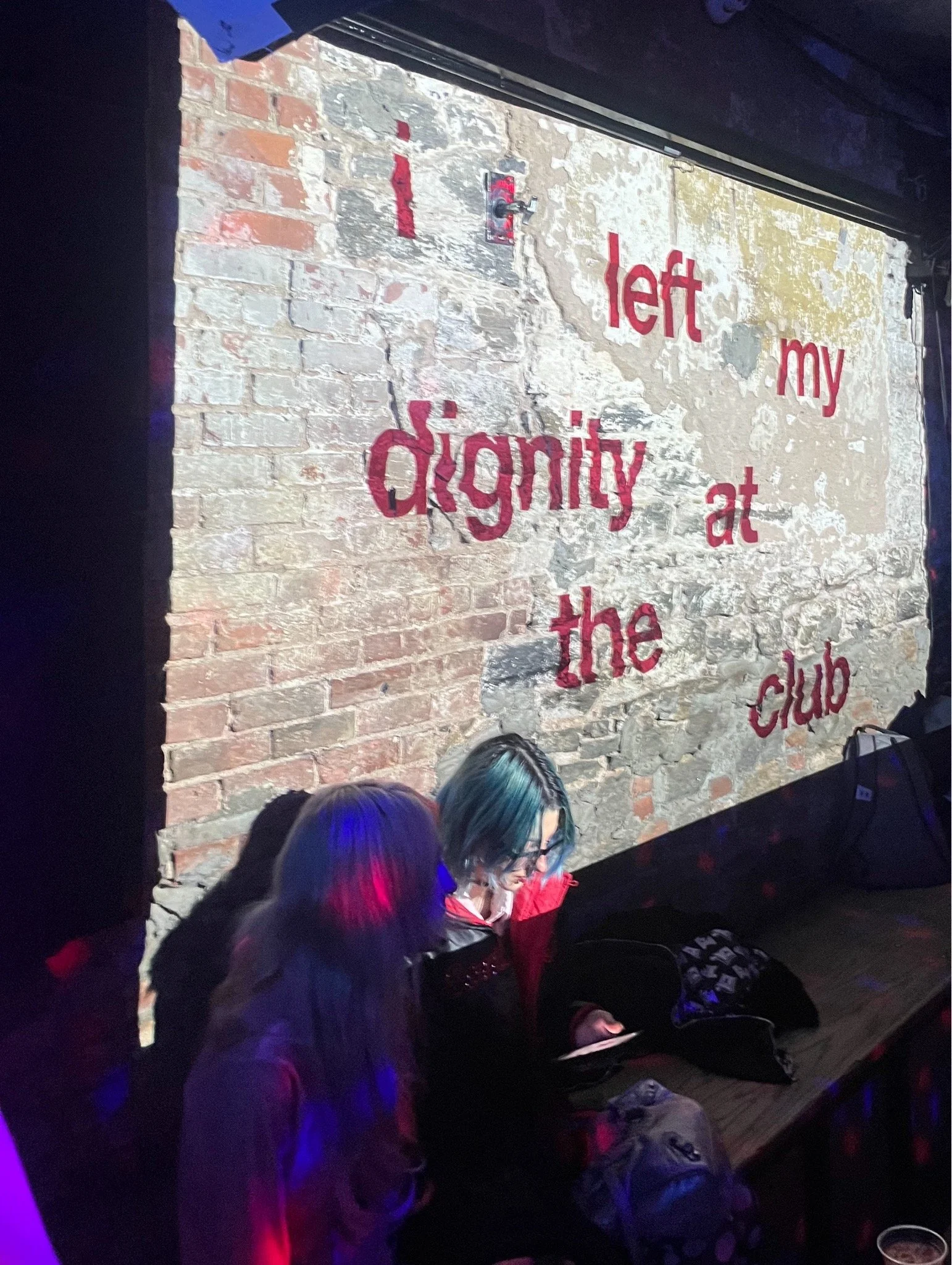Club Music Takes Back the Night
Party attendees take a break from dancing at Bowery Electric in Manhattan. Photo by Kate McLellan '25
Many Marist University students may be happy to find out that their going-out habits are a reflection of the zeitgeist of the times. Reflecting on Charli XCX’s recent Grammy wins and the success of her “brat” album, many believe that 2024 was the year of the “party girl.” Members of the Marist population are embracing this trend and listening to more club artists, including FKA twigs, Bassvictim, Shygirl, MGNA Crrrta and 2hollis.
“Everyone’s had the experience of listening to a song and thinking, wow, it just scratches my brain right: that’s dance and club music to me,” said Bella Bolzack ‘25. “While it has always been a part of my music rotation, in the past year, it has risen to the top of my favorite genres.”
Different genres fall under the umbrella of “club music.” Techno, house, disco, EDM and hyperpop are a few of the biggest.
Kiara Espinal ‘25 would credit her love for house music to English artist Nia Archives and her time spent studying abroad in London during the spring 2024 semester.
Similarly, Brooke Begley ‘25 finds joy in the high-speed and high-pitched music exemplified by artists working with the label PC Music. She discovered this within the walls of Champagnat Hall during her freshman year through the music of SOPHIE.
Without the work of legendary producer and artist SOPHIE, hyperpop would be essentially non-existent. On the “brat” album, “So I” is a tender goodbye to SOPHIE after her passing in 2021. The song reveres her friendship with Charli XCX and her incredible impact on music.
The widespread popularity of the album has given way for new fans to discover SOPHIE and frequent collaborators, such as A.G. Cook. It has become apparent that everyone will, in fact, “jump if A.G. made it,” as Charli sings on “360.”
“Hyperpop is a genre that is often looked down on because of how crazy and overproduced it initially sounds. I remember the first time I heard a SOPHIE song. I was shocked…I was like, this is really quite insane,” Begley said.
After the COVID-19 pandemic, there was renewed energy in club culture and music trends. The underground scene is a platform for diversity and shared joy between people who may be looked at as outcasts of mainstream society. Music that wasn’t taken seriously before is coming to the foreground, and it is not going away, just like the queer pioneers that are involved in these spaces.
In New York City, Linux, who can only be described as an “it-girl,” hosts a weekly party with an array of different DJs called Paul’s Dolls, which uplifts trans women and creates a safe space for them to come together and celebrate themselves.
It is incredibly important for people to have a release, and sharing music is often the most social way to bond over our struggles. To put it more bluntly, clubbing brings people with shared experiences together in a hot, sweaty room.
“Music trends really reflect the social, political, and economic states they exist within, and it feels clear to me that Charli[’s album] really capitalized on this moment in time where people are looking to pop music and club culture as a form of escapism. The increased popularity and influence of queer culture in the mainstream can also be attributed to this success and acceptance,” said Hanna Beth Lee ‘25.
FKA twigs released her third studio album, “EUSEXUA,” on Jan. 24, which features sensual beats inspired by the dance scene in Prague. It is a reflection of how these spaces make her feel.
In a TikTok video, she wrote, “Eusexua is for the girls who find their true selves under a hard metal silver stiletto on the damp rave floor.” Her experimental sound has received critical acclaim, and for many, it was their first time listening to an FKA twigs project.
The rise in club music’s popularity can also be attributed to nostalgia. With the trend cycle moving more rapidly through social media, people are looking to the past to recycle their previous infatuations. Often, irony makes for great artistry and poking fun at the person you used to be opens doors for artists to further excel in styles they once dabbled in.
“In 2020, we were obsessed with the 2000s. In 2025, we’ve moved to the 2010s,” said Begley. The current sound that she thinks is continuing to grow is “more reminiscent of 2010’s rave music like S3RL, Skrillex and the Chainsmokers. We are obsessed with the past!”
